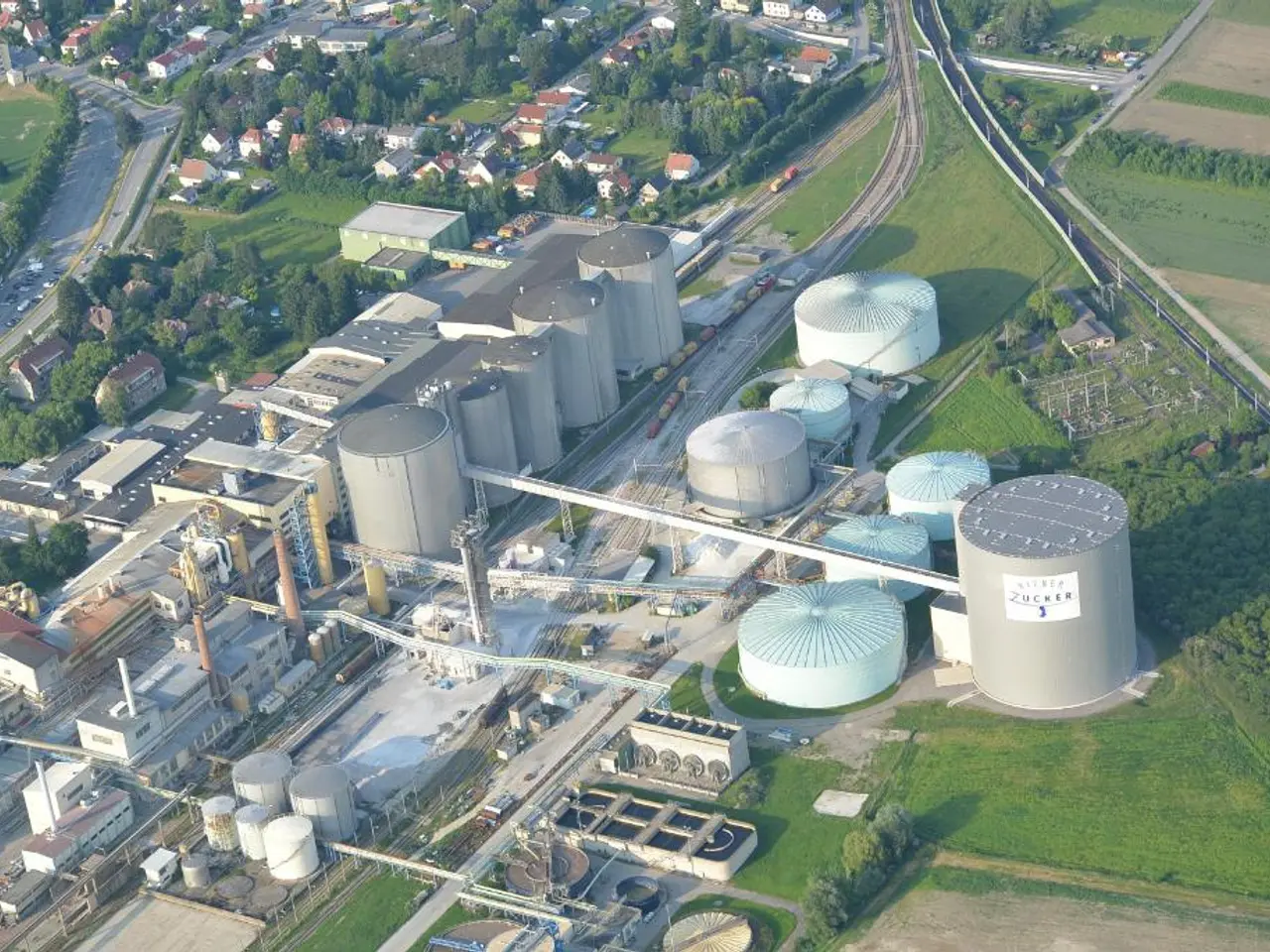Promoting Eco-Friendly Practices within the Paving Sector
**Sustainable Paving: A Path Towards a Greener Future**
The paving industry is undergoing a significant transformation, with a focus on creating a healthier planet through eco-friendly materials, technologies, and sustainable practices. This evolution extends beyond mere pavement laying, as it represents a collective effort to pave a path towards a more sustainable future.
One innovative approach is the use of Recycled Plastic-Enhanced Asphalt, developed by a German startup called Ecopals. This technology incorporates recycled polymer pellets, known as EcoFlakes, into asphalt. The EcoFlakes act as a compatibilizer, bonding polymers with bitumen and improving the resilience and longevity of roads while significantly reducing CO₂ emissions and plastic pollution.
Another promising development is Cold Mix Asphalt Technology, which is gaining global recognition for its energy efficiency and environmental benefits. Unlike traditional hot mix asphalt, cold mix does not require heating to high temperatures, saving fuel and reducing greenhouse gas emissions. This technology is cost-effective, easy to apply and store, and supports the use of recycled asphalt pavement (RAP), which reduces demand for virgin materials.
Sustainable paving also extends to smaller-scale projects, such as patios and driveways, through the adoption of eco-friendly concrete pavers and permeable stone options. These materials allow for water permeability, reducing stormwater runoff and enhancing groundwater recharge, which is critical for sustainable urban drainage.
Advances in restoration technologies contribute to eco-friendly paving by improving the efficiency and reducing the environmental footprint of repair and maintenance activities. New equipment and methods enable better preservation of existing pavements, extending their life cycle and avoiding the environmental costs of new material extraction and construction.
These advancements collectively reflect a growing trend toward integrating recycled materials, reducing energy consumption during production, improving water management, and extending the life cycles of pavements to support sustainable infrastructure development and environmental conservation.
The financial landscape for sustainable paving is evolving, offering reduced maintenance costs and potential tax incentives. Transitioning to sustainable paving methods promises impressive financial savings over time. Moreover, communities play a crucial role in promoting sustainable practices, such as workshops focused on eco-friendly paving techniques.
The sense of pride and accomplishment from seeing new projects that incorporate sustainable practices is personal and professional. Constructing a road with sustainable practices leads to growth, innovation, and a shared commitment to the environment. Innovative technologies, such as drones and AI, are transforming traditional paving techniques, further driving the industry towards sustainability.
Advocating for green initiatives within a business reinforces the belief that sustainability and profitability can coexist. Investing in sustainable paving can lead to long-term economic advantages. For more information, visit Asphalt Resurfacing at
Each step towards greener practices in the paving industry contributes to a collective legacy for future generations. The emotional impact of community engagement in sustainable paving highlights that we're all part of a broader solution. After all, paving a path for a healthier planet feels right, and it makes good economic sense.
- In the realm of photography, capturing the beauty and innovation of sustainable paving could be an inspiring subject, showcasing the transformation taking place in the paving industry.
- Fashion enthusiasts might find inspiration from sustainable paving practices, envisioning runway looks that reflect the global shift towards eco-friendly materials and technologies.
- Events focused on fashion, lifestyle, home-and-garden, data-and-cloud-computing, sustainable-living, technology, education-and-self-development, and career-development could incorporate presentations or workshops educating attendees about the benefits of sustainable paving.
- Monitoring and analyzing data related to the impact of sustainable paving methods on CO2 emissions, energy consumption, and road resilience could be a fascinating topic for scientific research and publication in media outlets.
- As part of personal growth and career development, individuals might be attracted to jobs in the paving industry that align with their values towards environmental conservation and sustainability.
- Collaborating with educators and schools to incorporate sustainable paving practices into the curriculum, teaching the next generation about the importance of eco-friendly infrastructure, could be a meaningful way to promote sustainability in various sectors of life.




